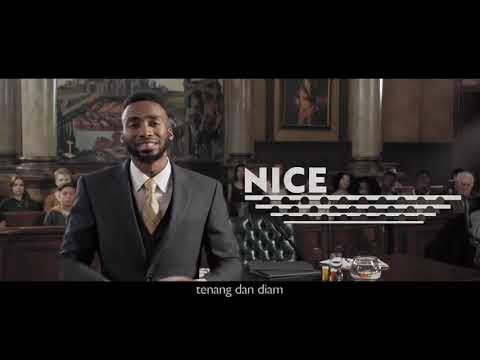Testing, Testing | Linda Darling-Hammond | TEDxStanford
Summary
TLDRThe speaker passionately critiques the overemphasis on standardized testing in education, arguing it fails to predict real-world success and stifles creativity. They highlight the need for higher-order thinking and problem-solving skills, which are increasingly demanded in the job market. The talk contrasts traditional testing with innovative assessment methods like project-based evaluations, showing how these better prepare students for future challenges. It calls for a paradigm shift in education, from rote memorization to active learning, and urges policymakers to consider new approaches that foster creativity and innovation.
Takeaways
- 📊 Standardized tests are often perceived as a necessary evil rather than a tool for evaluating knowledge, with many people feeling they don't reflect real-world problem-solving.
- 🧠 The speaker enjoys the challenge of standardized tests, but acknowledges that the skills they require are not typically useful in professional life.
- 🔍 Research indicates that standardized test scores are poor predictors of future success, suggesting they may not be the best measure of a person's capabilities.
- 🏢 Companies like Google have found no correlation between test scores and job performance, leading them to seek other methods for evaluating potential employees.
- 📈 There's a growing demand in the economy for higher-order thinking skills, complex communication, and problem-solving, rather than routine skills that are being automated.
- 🌐 The rapid pace of knowledge growth means that students are entering a world where they will need to use knowledge and technologies that have not yet been discovered.
- 📚 The traditional model of education, focused on memorization and standardized testing, is ill-suited to preparing students for the challenges they will face.
- 📉 Despite the emphasis on standardized testing, U.S. scores on international assessments have not improved and are falling behind other countries.
- 🌟 Some schools and states are moving towards alternative assessment methods, such as project-based assessments, which better prepare students for real-world challenges.
- 🔄 There is a push for change in education, with proposals to move away from the 'No Child Left Behind' model towards more innovative and effective forms of assessment.
Q & A
What is the speaker's personal opinion about standardized tests?
-The speaker actually enjoys taking multiple choice standardized tests, as they like to figure out what the test maker thinks is the right answer and having a definitive right answer.
According to the speaker, what do studies suggest about the predictive power of standardized tests?
-Studies have shown that standardized tests predict almost nothing about a person's success later in life.
Why did Google stop using test scores for hiring decisions?
-Google discovered no correlation between test scores and job performance, so they shifted to evaluating learning ability, problem-solving skills, and teamwork.
What is the current trend in the job market regarding higher-order thinking skills?
-There is a sharp increase in demand for higher-order thinking skills, complex communication, and problem-solving, while routine skills are in decline.
What did the research by Cal professors reveal about the growth of knowledge?
-The research revealed that more new knowledge was created between 1999 and 2003 than in the entire history of the world preceding that period.
How does the speaker describe the impact of standardized testing on teaching and learning?
-Standardized testing is undermining good teaching, pushing out important subjects, and causing stress and fear among students.
What is the No Child Left Behind Act, and how does it affect schools and students?
-The No Child Left Behind Act is a law that requires students to take tests annually to rank and judge schools. Schools must increase scores each year, or face sanctions. It has led to increased testing and pressure on students.
What alternative assessment methods are some schools using instead of traditional standardized tests?
-Some schools are using graduation portfolio systems where students complete standards projects in various subjects, which are assessed by panels including external judges.
What are the benefits of the portfolio system mentioned by the speaker?
-Students who go through the portfolio system are more likely to attend and graduate from college, and they develop skills like resilience, project management, and the ability to use feedback.
What is the current direction of educational reform in California, according to the speaker?
-California is moving towards new standards and assessments that focus on higher-order thinking skills and fewer but deeper assessments, rejecting the old model of testing and punishment.
How does the speaker suggest we should approach education to prepare for the future?
-The speaker suggests we should free our schools to become places that develop creative problem solvers and innovative leaders, focusing on real-world applications of knowledge rather than standardized test scores.
Outlines

This section is available to paid users only. Please upgrade to access this part.
Upgrade NowMindmap

This section is available to paid users only. Please upgrade to access this part.
Upgrade NowKeywords

This section is available to paid users only. Please upgrade to access this part.
Upgrade NowHighlights

This section is available to paid users only. Please upgrade to access this part.
Upgrade NowTranscripts

This section is available to paid users only. Please upgrade to access this part.
Upgrade NowBrowse More Related Video
5.0 / 5 (0 votes)





